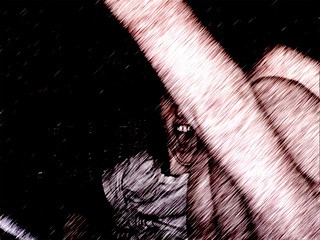I wrote a long time ago about my entry into Physics/Math from women's studies. (Read all about it here)
It Begins: I need to preface this with stating that I have been to a plethora of colleges, the majority of which were art and design schools with one liberal arts school before I came to my current university. I was admitted to the hippie college because I wanted to create a concentration in Media, Women's, and Labour studies, which was my life for the years that passed between colleges. I had no idea I would throw off my intended concentration for mathematics, but one person made me dream of a future filled with equations.
It inspired a post by Zuska (an engineer), after it showed up in Scientiae, a blog carnival for women scientists.
This is indeed a wonderful tale to read. What is heartening to me here is to see women's studies acting in concert with support for women in science - not just focusing on theoretical critiques of science and engineering, but actually aiding in the mentoring of a woman into science. When I was a graduate student at Duke University, women's studies played a vital role in helping me finish my PhD. The director, Jean O'Barr, and the members of my women's studies reading group all encouraged me. They advised me how to deal with the knucklehead professor in my department who was on a vendetta to drive out all the women; consoled me after a grueling 4.5 hour preliminary exam; and just provided a general network of support.
How discouraging, then, how depressing, to receive the latest newsletter from women's studies at Duke, and read the tale of not one, but FOUR women who talk of leaving science to major in women's studies!
To make matters worse, we hear the following from one of the students:
After my first class, I knew that Women's Studies was about more than just the history of women, which common perceptions indicate; it is rich and bursting with theoretical questions, with competing analyses about society, with vibrant accounts of identity. Unlike engineering, where I only used my mathematical, scientific side, Women's Studies gives me the opportunity to think both abstractly and concretely, with one foot in an academic discussion and one in the realities of everyday life.
Now I use all of my brain all of the time. I even was talked into going into Physics by combining women's studies AND physics. Behold:
Nancy Swanson (my prof) and I had many discussions about me going into a scientific field; I was still concerned about leaving a possible career in women's studies for one in science, she told me about how I could work for the National Science Foundation (NSF) and work to enact policies that ensure that girls and women were getting the same access to mathematics and science that boys and men have, and ones that could encourage girls to go into the fields of science, technology, engineering, and mathematics (STEM). She talked to me about ways in which I could incorporate my work in feminism with science.
And today I am first author on a paper that is about to be resubmitted (with the minor revisions finished) that is all about closing the gender gap in introductory physics using practices called "Wise Schooling" in the field of Educational Psychology. I can't talk about it much now, but after the paper gets published will I be talking about it then! You Betcha! (Also we're doing a workshop on it at this summer's American Association of Physics Teachers Conference in Philly, PA so WHEEEEEEEEEE!)





0 comments:
Post a Comment